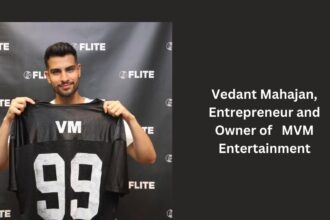Who will admission better in the ongoing endeavor slump?
Will it be the heritage financial backers with long periods of involvement amassed through various market cycles — however who likewise have a sizable portfolio to stress over — or the arising directors who are checking out at the market with an open-minded perspective and a fresh start? We’re going to find out.
Last year saw a record 270 first-time finances close, as per PitchBook information, and that implies there are right around 300 arising directors who brought their asset up in a positively trending market and are currently conveying it in totally different economic situations.
Also Read: A Brand Revolutionizing India’s Clean, Safe, And Ethically Sourced Beauty Products
We surveyed six first-time assets to all the more likely comprehend how this gathering of financial backers is exploring the slump.
A few first-time store chiefs, as Giuseppe Stuto, prime supporter and overseeing accomplice of 186 Ventures, a Boston-based beginning phase generalist reserve, let TechCrunch know that entering the slump with a tiny existing portfolio could act as a major benefit.
“We don’t convey any of the stuff that might accompany having past assets or having a ton of capital restricted in what is by all accounts exceptionally overrated vintages,” Stuto said. “Very much like a pioneer, who takes a gander at the world uniquely in contrast to educated authorities, we (first-time chiefs) bring a new viewpoint of how certain issues and ventures are creating.”
Leslie Feinzaig, the pioneer and CEO at Graham and Walker, an asset that backs beginning phase computerized new businesses, added that despite the fact that she began effective financial planning her asset during the buyer market keep going year, zeroing in on an organization’s true capacity downstream gamble was critical — as a first-time store director, she was unable to imperil her growing history in any capacity.
“The enormous benefit is that we don’t have numerous earlier speculations that are presently high gamble, and we don’t have to concentrate as a lot of our experience on triaging the portfolio,” Feinzaig said. “I can zero in as a rule on the way forward.”
Since these financial backers have a more modest nursery to tend, as it’s been said, they can zero in more on ensuring the new organizations they add to the portfolio are stronger against current market patterns.
One thing these chiefs are better prepared to assist their portfolio with making arrangements for is runway. Stuto said that when 186 Ventures began putting resources into the brief days of the positively trending market, expansion supporting was definitely not a major piece of the discussion, yet now that plainly will be quite difficult for new businesses, 186 Ventures intends to zero in more on ensuring its speculations consider a significantly longer runway.
“Span funding was promptly accessible last year, so it was not difficult to hand-wave whether you’d have the option to draw in new financial backers at a ‘slight’ up round,” he said. “A piece of our proposal presently is that this scaffold supporting will probably not be as accessible, so contingent upon the business and who the other funding accomplices are in the round, we have expanded our ‘market status’ edge.”
Ariana Thacker, the pioneer and solo GP at Conscience VC, concurred and said while she’s actually searching for similar sorts of new businesses, she is most certainly placing an accentuation on bargains that outcome in the organization having 24 to three years of runway.

















